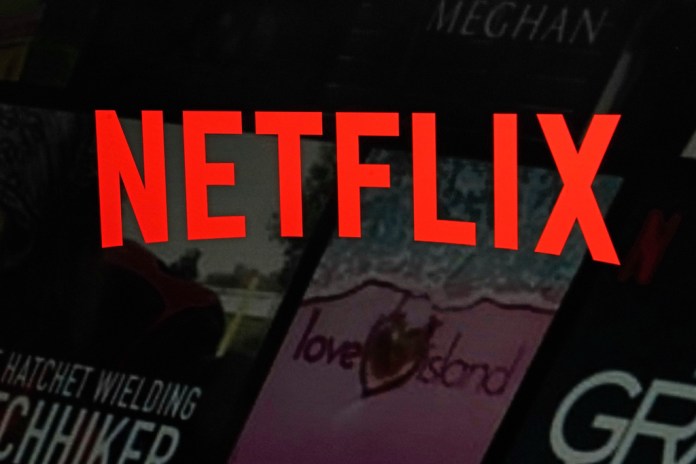The tentacles of Squid Game’s success – Washington Examiner
The article discusses the impact and reception of Netflix’s hit series “Squid Game,” which debuted in 2021 and quickly became one of the most disturbing yet acclaimed shows in recent television history. The original series followed the story of Seong Gi-hun, a man facing financial struggles who is lured into a deadly tournament where contestants play children’s games with fatal consequences, highlighting South Korea’s debt crisis. The show’s blend of compelling characters, sharp social commentary, and unique storytelling resonated with audiences, making it netflix’s most-watched series ever.
However, the article expresses skepticism about the newly released second season, describing it as needless and at times unsatisfying. This follow-up attempts to expand the show’s universe three years after the original, but it’s suggested that it may retread familiar ground without the same impact. Despite the potential for interesting developments, the author notes that the creator initially had no intention of creating a sequel, leading to concerns about the depth and relevance of the new content. while celebrating the groundbreaking success of “Squid Game,” the piece critiques the decision to continue the story without its original narrative coherence.
The tentacles of Squid Game’s success
In 2021, Netflix’s miniseries Squid Game immediately established itself as one of the most upsetting television series ever made — and one of the best. The South Korean show’s new second season is a needless and unsatisfying, if sometimes interesting, coda to one of the most important television series of the streaming era. Three years after the original, which was not made with a sequel in mind, this season attempts to build out Squid Game’s world, both retreading — sometimes too much — and deepening it.
The first Squid Game was gripping, creative, and unforgettable — an ultraviolent, even traumatic, refreshing of the tired dystopia genre, populated by three-dimensional characters and laced with sharp social critique. The series followed a down-on-his-luck Korean man, Seong Gi-hun (Lee Jung-jae), whose gambling problem had left him in hock to a scary gangster and fighting for custody of his daughter with an estranged ex-wife. One evening, a mysterious man dressed like a salesman (Gong Yoo) approached Gi-hun in the street and challenged him to a simple wager; the Faustian outcome saw Gi-hun drugged, kidnapped, and taken to a secret island complex.
The island was filled with other Koreans suffering from financial problems which embodied, in different ways, South Korea’s massive crisis of personal debt, which some analysts have estimated is larger than the country’s GDP. Mysterious jailers in bright-pink jumpsuits forced Gi-hun and his fellow inmates to be contestants in a terrifying tournament for the amusement of masked oligarchs, with a prize in the millions of dollars.
The tournament was a series of variations on common Korean children’s games — think tic-tac-toe, hopscotch, and the like — this time with a penalty of death, often administered on the spot by submachine-gun-wielding guards. At the same time as Gi-hun was enduring this ordeal, a police officer, Hwang Jun-ho (Wi Ha-joon), infiltrated the mysterious island in search of his missing brother.
Squid Game was a perfect storm: a better-written Hunger Games, crossed with Parasite and a splash of Eyes Wide Shut, with striking art design that spawned a thousand Halloween costumes. The show arrived as a pandemic cooped people across the world inside and had them feeling a bit dystopian themselves, and it even had a compelling behind-the-scenes origin story: The creator, Hwang Dong-hyuk, had spent 10 years trying to get anyone interested in the project, which was inspired by his own money problems.
That Squid Games became Netflix’s most-viewed series of all time, edging out Stranger Things, proved, excitingly, that viewers would watch foreign-language content. The show also exposed Korean film and TV, known for intricate plotting and wild tonal shifts, to a wider international audience.
The original nine-episode series was perfectly paced and mostly conclusive; it was not written to foreground an ongoing series, and Hwang has been frank about the fact that he agreed to continue the series because of audience and commercial pressure. Squid Game’s showrunners have also said they split this (likely final) sequel series into two parts, meaning that what is called the second season is more like Season 2A. As other series such as The Bear have shown, splitting seasons like this is a risky decision that often leaves viewers unhappy.
Season Two picks up fairly closely where the first ended. All the major surviving characters are back, plus a character who did not, strictly speaking, survive but has been resuscitated with a classic screenwriting workaround that won’t bother viewers too much.
Since winning the tournament, somewhat despite himself, at the end of the first season and swearing to seek justice for his murdered friends, Gi-hun has gone underground and off the grid. He’s living in secret in a disused and fortified motel. Rather than luxuries, he’s spent his winnings on a private investigation to find the exact location of the island and the identities of the games’ organizers. He has enlisted some local gangsters in his quest. The police detective, Hwang, is also continuing his parallel investigation.
Gi-hun is tantalizingly close to a major breakthrough, but there’s one problem: His foes know it too and are determined to stop him. They outfox and kidnap him. He wakes up, back on the island, to discover that he’s been made a contestant all over again.
The second season fleshes out some of the world created in the first. Through the eyes of Kang No-eul (Park Gyu-young), a guard, we see some of the inner workings of the island. As with any supervillain’s lair, the island fortress has impressive internal logistics. Since the previous contestants are dead, there are also a slew of new characters, including a transgender woman as well as a lot more younger contestants. (The writers of Squid Game seem poorly disposed to Korean 20-somethings, or young people generally; the younger characters are generally vapid, psychopaths, or cowards.)
There are more developments that I don’t wish to short-change or spoil, but attentive readers will have already noticed an obvious problem: The plot is, to a large extent, a rehash of the first season. Sure, making Gi-hun play the game again but with foresight raises some interesting angles. Among other things, he soon realizes that it’s really hard to persuade people that the game they’re about to play may kill them. And, as in the first season, there are provocative questions posed about human nature, the psychology of addiction, and game theory. The contestants can cancel the tournament if a majority vote to end it but repeatedly fail to do so. Is that because of greed? Because human beings have a tough time believing in their own mortality? Or because the contestants are so down and out that risking death for financial redemption feels like an acceptable trade?
Nonetheless, the new season feels a bit baggy despite being two whole episodes shorter. More to the point, it feels redundant. The finale is genuinely exhilarating — but also unsatisfying, with a heroes-in-peril cliffhanger that sets up the next installment. It’s a frustrating outcome but oddly apt. Like Squid Game’s contestants, I’ll return for Season Three, even if I know I shouldn’t.
J. Oliver Conroy’s writing has been published in the Guardian, New York magazine, the Spectator, the New Criterion, and other publications.
" Conservative News Daily does not always share or support the views and opinions expressed here; they are just those of the writer."




